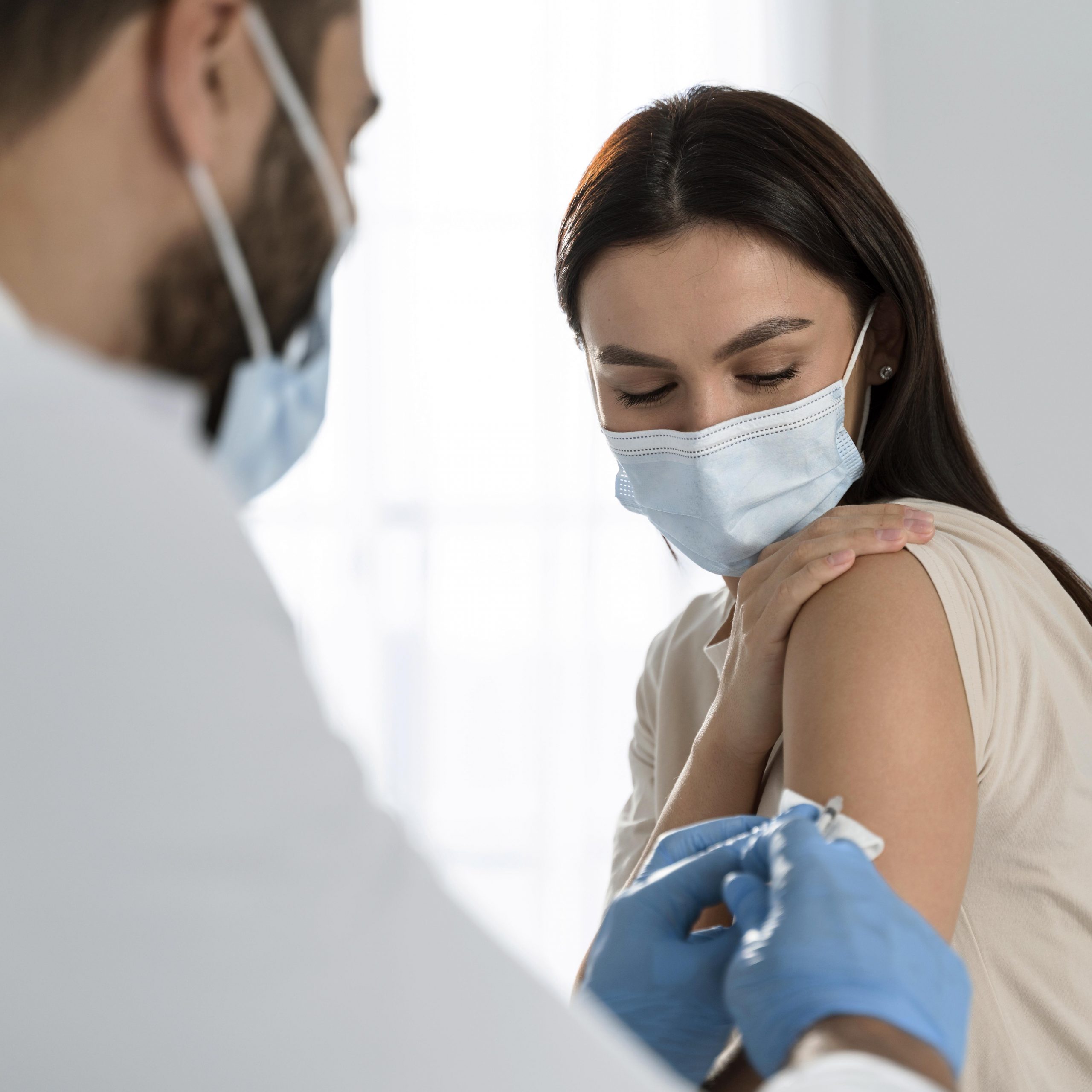

When the new COVID-19 vaccines were introduced two years ago, public health experts saw an increase in incidences of myocarditis, an inflammation of the heart muscle, particularly among young guys who had received mRNA immunizations. However, it was unclear what was triggering this reaction.
Yale researchers have found the immunological profile of these heart inflammatory cases in a recent study.
These findings, which were published on May 5 in the journal Science Immunology, rule out some of the previously proposed causes of heart inflammation and provide potential approaches to further minimize the occurrence of a yet uncommon adverse effect of vaccination, according to the scientists.
Myocarditis is a moderate inflammation of heart tissue that might cause scarring but normally resolves within a few days. The increased prevalence of myocarditis during vaccination was noticed largely among males in their teens or early twenties who had been vaccinated with mRNA vaccines, which are designed to elicit immunological responses specific to the SARS-CoV-2 virus.
According to the Centers for Disease Control and Prevention (CDC), 22 to 36 males aged 12 to 17 had myocarditis within 21 days of receiving a second vaccination dose. After infection with the COVID-19 virus, the incidence of myocarditis among uninfected males in this age group ranged from 50.1 to 64.9 cases per 100,000.
The Yale research team conducted a rigorous investigation of immune system responses in those uncommon incidences of myocarditis among vaccinated individuals for the new study. Carrie Lucas, an assistant professor of immunobiology, Akiko Iwasaki, the Sterling Professor of Immunobiology, and Inci Yildirim, an associate professor of pediatrics and epidemiology, led the team.
They discovered that the heart inflammation was triggered by a more widespread reaction involving immune cells and inflammation, rather than by antibodies produced by the vaccine.
“The immune systems of these individuals get a little too revved up and over-produce cytokine and cellular responses,” Lucas said.
Previous studies revealed that lengthening the interval between immunization doses from four to eight weeks may lower the chance of acquiring myocarditis.
According to CDC data, the risk of myocarditis among unprotected individuals who get the COVID-19 virus is much higher than in those who receive immunizations. She stressed that vaccination is the greatest way to prevent COVID-19-related sickness.
“I hope this new knowledge will enable further optimizing mRNA vaccines, which, in addition to offering clear health benefits during the pandemic, have a tremendous potential to save lives across numerous future applications,” said Anis Barmada, an M.D./Ph.D. student at Yale School of Medicine, who is a co-first author of the paper with Jon Klein, also a Yale M.D./Ph.D. student.
more recommended stories
 Nanoplastics in Brain Tissue and Neurological Risk
Nanoplastics in Brain Tissue and Neurological RiskKey Takeaways for HCPs Nanoplastics are.
 AI Predicts Chronic GVHD Risk After Stem Cell Transplant
AI Predicts Chronic GVHD Risk After Stem Cell TransplantKey Takeaways A new AI-driven tool,.
 Red Meat Consumption Linked to Higher Diabetes Odds
Red Meat Consumption Linked to Higher Diabetes OddsKey Takeaways Higher intake of total,.
 Pediatric Crohn’s Disease Microbial Signature Identified
Pediatric Crohn’s Disease Microbial Signature IdentifiedKey Points at a Glance NYU.
 Nanovaccine Design Boosts Immune Attack on HPV Tumors
Nanovaccine Design Boosts Immune Attack on HPV TumorsKey Highlights Reconfiguring peptide orientation significantly.
 High-Fat Diets Cause Damage to Metabolic Health
High-Fat Diets Cause Damage to Metabolic HealthKey Points Takeaways High-fat and ketogenic.
 Acute Ischemic Stroke: New Evidence for Neuroprotection
Acute Ischemic Stroke: New Evidence for NeuroprotectionKey Highlights A Phase III clinical.
 Statins Rarely Cause Side Effects, Large Trials Show
Statins Rarely Cause Side Effects, Large Trials ShowKey Points at a Glance Large.
 Anxiety Reduction and Emotional Support on Social Media
Anxiety Reduction and Emotional Support on Social MediaKey Summary Anxiety commonly begins in.
 Liquid Biopsy Measures Epigenetic Instability in Cancer
Liquid Biopsy Measures Epigenetic Instability in CancerKey Takeaways Johns Hopkins researchers developed.

Leave a Comment